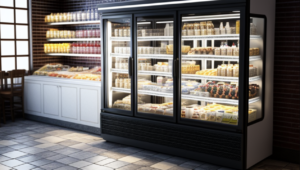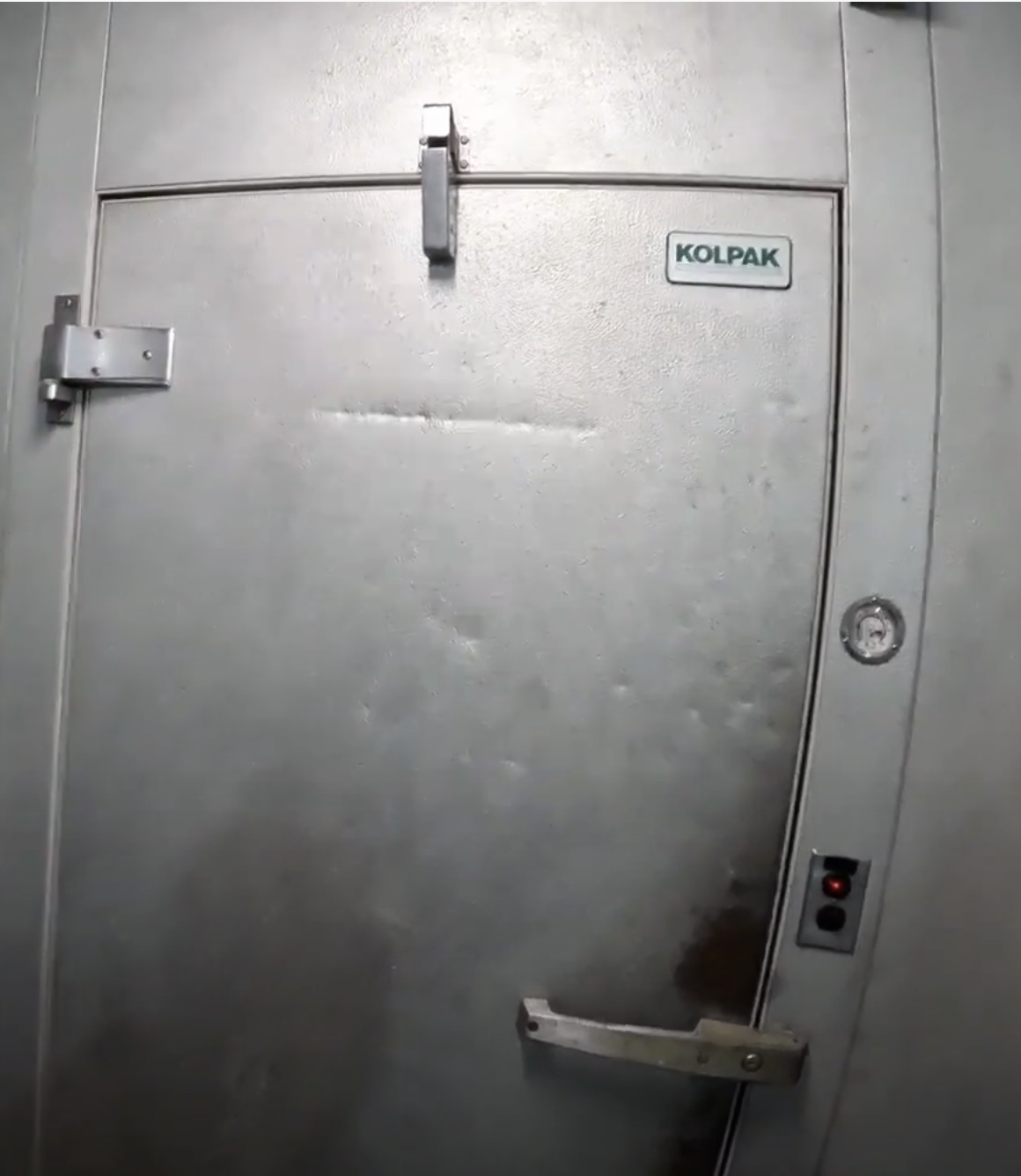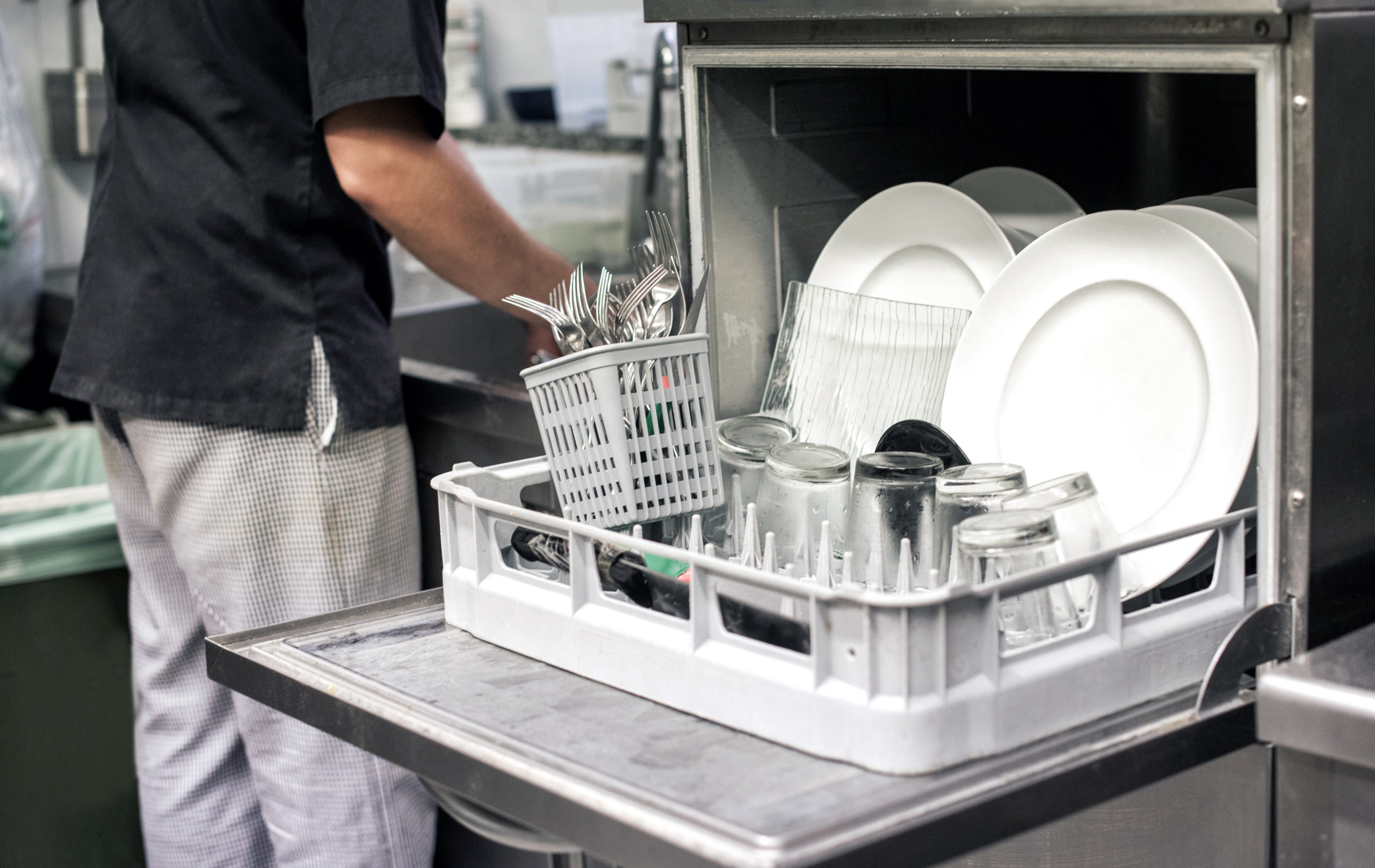Commercial refrigeration systems play a crucial role in many businesses, including restaurants, grocery stores, and warehouses, by preserving perishable goods and maintaining the quality of products. These systems are designed to keep food items and other materials at safe temperatures, ensuring the health and safety of customers and staff. Despite their importance, commercial refrigeration systems can be susceptible to a variety of issues that can impact their performance, leading to increased energy consumption, product loss, and even potential health hazards.
By staying informed about the potential issues that commercial refrigeration systems may face and knowing when to seek professional help, you can keep your equipment in optimal condition and maintain a safe and efficient environment for your business.
 Common Issues in Commercial Refrigeration Systems and Their Solutions
Common Issues in Commercial Refrigeration Systems and Their Solutions
Commercial refrigeration systems play a crucial role in businesses such as restaurants, grocery stores, and warehouses. However, they can sometimes encounter issues that may impact their performance and efficiency. In this section, we will delve deeper into common problems with commercial refrigeration systems, their causes, and potential solutions.
- Inadequate Cooling
Inadequate cooling is a prevalent issue in commercial refrigeration systems and can result in spoiled products and increased energy consumption. Some potential causes and solutions for this problem include:
- Low refrigerant levels: Insufficient refrigerant in the system can reduce cooling efficiency. To fix this issue, a professional technician should inspect the system for leaks and replenish the refrigerant as needed.
- Dirty condenser coil: A dirty condenser coil can hinder the heat exchange process, leading to poor cooling performance. Regular cleaning and maintenance of the condenser coil can help prevent this issue.
- Malfunctioning thermostat: A faulty thermostat may not accurately regulate the temperature inside the refrigerator. Replacing the thermostat or recalibrating it can help resolve this problem.
Regular commercial refrigeration maintenance is crucial in preventing inadequate cooling by ensuring that all components are functioning optimally.
- Ice Buildup
Ice buildup can obstruct airflow in a commercial refrigerator or freezer, leading to temperature fluctuations and other problems. Some common causes and solutions for ice buildup include:
- Faulty door seal: A damaged door seal can allow warm air to enter the refrigerator, causing condensation and ice buildup. Inspecting and replacing the door seal as needed can help prevent this issue.
- Malfunctioning defrost system: A defective defrost system can lead to excessive ice accumulation. Regularly inspecting and repairing the defrost system can help ensure proper functioning.
- High humidity in the surrounding environment: High humidity can contribute to ice buildup. Installing a dehumidifier or improving ventilation in the area can help maintain an appropriate level of humidity.
- Strange Noises
Unusual noises emanating from a commercial refrigerator can indicate problems with its components. Early detection and repair can help prevent further damage and costly repairs. Some common causes and solutions for strange noises include:
- Compressor issues: A failing compressor can produce unusual noises. A professional technician should inspect the compressor and replace it if necessary.
- Evaporator fan problems: A malfunctioning evaporator fan can generate excessive noise. Regularly inspecting the fan and replacing it if needed can help resolve this issue.
- Condenser fan issues: A defective condenser fan can also create abnormal sounds. Inspecting and replacing the condenser fan can help alleviate this problem.
Resetting Your Commercial Refrigerator: A Comprehensive Guide
Resetting your commercial refrigerator is a simple yet effective troubleshooting method that can help resolve minor issues and restore the appliance’s functionality. This process essentially involves cutting off the power supply to the refrigerator, allowing it to “reset” itself before powering it back on. Here, we provide a more detailed explanation of the resetting process, its benefits, and the instances when professional help may be required.
Benefits of Resetting Your Commercial Refrigerator
Resetting your commercial refrigerator can provide several advantages, including:
- Resolving minor electrical issues: Some electrical problems, such as power surges or glitches, can cause temporary malfunctions in your commercial refrigerator. Resetting the appliance can often resolve these minor issues.
- Refreshing the control system: Over time, your refrigerator’s control system may experience minor errors or performance degradation. Resetting the appliance can help refresh the control system and restore optimal functioning.
- Clearing error codes: In some cases, commercial refrigerators may display error codes indicating specific issues. Resetting the appliance can clear these error codes and potentially resolve the underlying problem.
Step-by-Step Guide to Resetting Your Commercial Refrigerator
- Power down the refrigerator: Locate the power switch or unplug the refrigerator from the power source. If your refrigerator has a dedicated circuit breaker, switch it off.
- Wait: Allow the refrigerator to remain disconnected from the power source for about 30 seconds to 1 minute. This waiting period ensures that the appliance’s internal components have ample time to reset.
- Restore power: Reconnect the power source, turn the power switch back on, or switch on the dedicated circuit breaker. The refrigerator should now be reset and ready for use.
Troubleshooting Commercial Refrigerators That Won’t Cool
If your commercial refrigerator is not cooling or running without cooling effectively, there could be several factors contributing to this issue. In this section, we will discuss some troubleshooting steps to take when your commercial refrigerator isn’t cooling properly and when to consult a professional for repair services.
Steps to Fix a Commercial Refrigerator That Won’t Cool
- Check the thermostat settings: Ensure that the thermostat is set to the appropriate temperature. If the settings are incorrect, adjust them accordingly.
- Inspect the condenser coil: A dirty or clogged condenser coil can impact the cooling efficiency of your commercial refrigerator. Make sure to clean it if you find any dirt or debris obstructing it.
- Verify the door seal: Damaged door seals can cause cold air to escape and warm air to enter, affecting the cooling performance of your refrigerator. Check the door seal for any damage and replace it if necessary.
- Examine the evaporator and condenser fans: Ensure that both fans are functioning properly, as faulty fans can lead to inadequate cooling.
Possible Causes of a Commercial Fridge Running But Not Cooling
If your commercial fridge is running but not cooling, it could be due to the following factors:
- Malfunctioning thermostat: A faulty thermostat may not correctly regulate the temperature inside the fridge, leading to cooling issues.
- Low refrigerant levels: Insufficient refrigerant can prevent your commercial refrigerator from cooling effectively. This can be due to leaks or an undercharged system.
- Blocked condenser or evaporator: Obstructions in the condenser or evaporator can impede the flow of air, causing cooling problems.
- Faulty compressor: The compressor is a vital component of your commercial refrigeration system, and a malfunctioning compressor can significantly affect the cooling performance.
Preventative Maintenance and Additional Services
To keep your commercial refrigeration systems running efficiently and effectively, preventative maintenance is key. Regular maintenance can help identify potential problems before they become severe, saving you time and money on costly repairs.
Scheduled Commercial Refrigeration Maintenance
Scheduling regular maintenance with a professional service provider will ensure that your commercial refrigeration system is in optimal working condition. This may include:
- Checking and cleaning the condenser and evaporator coils
- Inspecting and lubricating the fan motors
- Examining the refrigerant levels and checking for leaks
- Assessing the thermostat and other controls
- Inspecting the door seals and hinges
In conclusion, commercial refrigeration systems are vital for many businesses, and understanding the common issues they face can help you maintain and troubleshoot your equipment effectively. Remember to invest in regular commercial refrigeration maintenance, and if you ever encounter a problem that you can’t resolve, don’t hesitate to contact a professional for services such as a restaurant walk-in cooler or commercial refrigeration repair.


